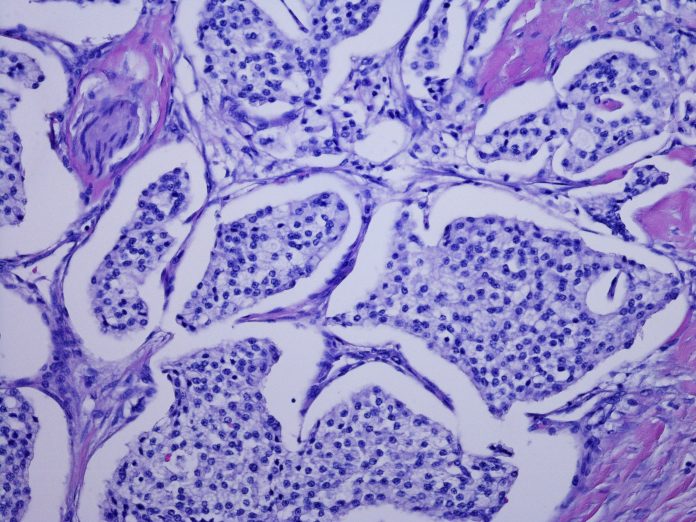
FogPharma has announced a $178 Million Series D financing to support development of a proprietary class of precision medicines—Helicon polypeptide therapeutics—that could address a wide range of targets, including some previously considered “undruggable.” FOG-001, a first-in-class direct TCF-blocking β-catenin inhibitor, is expected to enter clinical development for colorectal cancer in mid-2023.
“We believe that Helicon polypeptides, a compelling new therapeutic modality, represent the future of precision medicine,” said Gregory Verdine, PhD, founder, chairman, and chief executive officer of FogPharma.
More than 80% of known human protein disease targets are considered “undruggable” because they are beyond the reach of both antibodies and small molecules. Dysregulation of the Wnt/β-catenin signaling pathway has been shown to occur in at least 20% of all human cancers. The company estimates that in the U.S. alone, FOG-001 has the potential to become a new treatment option for more than 1 million patients with a broad range of cancers.
The financing round includes new investors ARCH Venture Partners, Milky Way Investments and Fidelity Management & Research Company and existing investors VenBio Partners, Deerfield Management, GV, Cormorant Asset Management, funds and accounts advised by T. Rowe Price Associates, Invus, Farallon Capital Management, HBM Healthcare Investments, Casdin Capital, and PagsGroup, also participated.
Proceeds from the financing will be used to advance FogPharma’s growing pipeline of hyperstabilized Helicon polypeptide therapeutics. In addition to FOG-001, the company has programs against cancer targets TEAD, NRAS, Pan-KRAS, ERG, and Cyclin E1.
“FogPharma continues to make rapid progress on our moonshot mission to achieve universal druggability – a world where no targets are off-limits to medicine,” said Verdine.
The company’s Helicon peptide drug discovery engine integrates directed evolution, proprietary α-helix conformational hyperstabilization chemistry, highly multiplexed drug optimization technology, artificial intelligence including deep learning and machine learning, structure-based drug discovery, cancer genomics and biology, and multiscale manufacturing.
They report that Helicon polypeptide therapeutics combine the targeting strength and specificity of antibodies with the broad tissue distribution, intracellular target engagement and oral dosing features of small molecules. In biochemical and cellular studies, FOG-001 has been shown to potently, precisely and selectively disrupt the interaction of β-catenin with its downstream transcription factor, TCF. Preclinical studies have demonstrated the ability of FOG-001 to cause tumor growth inhibition and regression by disrupting β-catenin-dependent signaling.
FOG-001 acts inside the cell, where it directly binds the key oncogenic driver β-catenin. It also blocks TCF-β-catenin engagement at the most downstream node in the Wnt pathway, thus abrogating the signal transmission mechanism by which most, if not all, known Wnt pathway mutations are believed to drive oncogenesis.
In connection with this financing, Verdine has been appointed as chairman of the board while Rick Klausner, M.D., has been appointed to FogPharma’s board of directors. Klausner is currently the founder and chief scientist of Altos Labs and founder and chairman of Lyell Immunopharma. He was founder and director of Juno Therapeutics and founder and director of GRAIL. Klausner was appointed by Presidents Clinton and Bush as the eleventh director of the U.S. National Cancer Institute (NCI) between 1995 and 2001.













